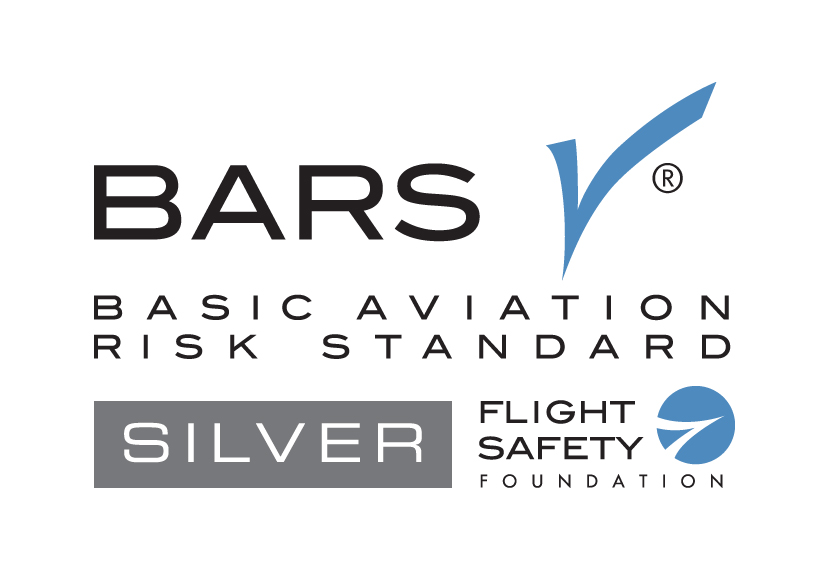INTRODUCTION
WHO WE ARE
With operations spanning all three Canadian coasts, Custom Helicopters LTD. (Custom) is an industry leader in rotary wing operations, maintenance, and technical support. With over 100 specially trained professional pilots, technicians and highly skilled support personnel operating over 30 helicopters, Custom delivers safe and reliable aircraft services in the most challenging operating environments in the world. Custom has extensive experience providing helicopter services to support exploration activities, utility work, wildlife and environmental surveys, and aerial inspections using its diverse fleet.
STATEMENT OF COMMITMENT
Custom is dedicated to advancing accessibility and creating barrier-free communities, workplaces, and services for all. We are committed to equal access, service, and participation for all people, regardless of their capabilities.
This accessibility plan has been prepared in accordance with the following principles:
- All persons must be treated with dignity regardless of their disabilities.
- All persons must have the same opportunity to make for themselves the lives that they are able and wish to have regardless of their disabilities.
- All persons must have barrier-free access to full and equal participation in society, regardless of their disabilities.
- All persons must have meaningful options and be free to make their own choices, with support if they desire, regardless of their disabilities.
- Laws, policies, programs, services and structures must take into account the disabilities of persons, the different ways that persons interact with their environments and the multiple and intersecting forms of marginalization and discrimination faced by persons; and
- Persons with disabilities must be involved in the development and design of laws, policies, programs, services and structures.
CONTACT INFORMATION & FEEDBACK PROCESS
Custom welcomes feedback from the public, stakeholders, and our employees. Your feedback about the accessibility plan or the feedback process will help us identify and break down accessibility barriers.
You can submit your feedback by:
- MAIL:
Custom Helicopters LTD
500-1780 Wellington Avenue
Winnipeg, Manitoba R3H 1B3
- EMAIL: accessibility@customheli.com
- PHONE: 1-204-338-7953
The Accessibility Committee will inform and involve other departments as required based on the nature of the feedback.
"*" indicates required fields
Accessibility Plan
Table of contents
- DEFINITIONS
- PART 1: EMPLOYMENT
- PART 2: COMMUNICATION
- PART 3: COMMUNICATION OTHER THAN ICT (INFORMATION AND COMMUNICATION TECHNOLOGIES)
- PART 4: PROCUREMENT OF GOODS, SERVICES, AND FACILITIES
- PART 5: DESIGN AND DELIVERY OF PROGRAMS AND SERVICES
- PART 6: TRANSPORTATION
- PART 7: BUILT ENVIRONMENT
- PART 8: CONSULTATION
- CONCLUSION
DEFINITIONS
The following definitions are words that are used throughout this document:
Disability: “means any impairment, including a physical, mental, intellectual, cognitive, learning, communication or sensory impairment – or a functional limitation – whether permanent, temporary or episodic in nature, or evident or not, that, in interaction with a barrier, hinders a person’s full and equal participation in society.”
Barrier: “Means anything – including anything physical, architectural or attitudinal, anything that is based on information or communications or anything that is the result of a policy or a practice – that hinders the full and equal participation in society of persons with an impairment, including a physical, mental, intellectual, cognitive, learning, communication or sensory impairment or a functional limitation.”
The full definitions of these words can be located online in the summary of the Accessible Canada Act
PART 1: EMPLOYMENT
Custom is committed to fostering an inclusive workplace where all employees are treated with respect and dignity and will act in a manner consistent with its obligations under the Canadian Human Rights Act and the Employment Equity Act.
In review of employment practices and policies no barriers to employment have been identified, however recommendations have been provided to better create and further foster inclusivity within our work environment.
The following recommendations have been identified to enhance our environment of inclusivity:
- Include diversity and inclusion statements in career advertisements.
- Improve awareness opportunities for candidates to request reasonable accommodation during the recruitment process.
- Ensure all employees are informed about our policies for accommodating employees in the workplace.
- Ensure employees who require individualized accommodation plans participate in the accommodation process and contribute to the joint development of the accommodation plan with Custom.
- Create individual emergency response plans for employees with disabilities that require assistance. When consent is given, develop a process to share information with emergency response personnel.
It is the responsibility of all managers to ensure any accessibility barriers that are communicated or observed are brought forward to Human Resources.
Complaints or recommended improvements are tracked via Custom’s Safety Management System until resolve is provided.
PART 2: COMMUNICATION
Digital communication has allowed for faster, easier, and more convenient ways to work with experts all over the world. The ability to communicate quickly and concisely in a way that is accessible to everyone is essential to Custom and its operations.
We plan to create a dedicated accessibility webpage that will include this accessibility plan, any related accessibility forms, and company information in plain language. Furthermore, it is the intention of Custom for the accessibility page to include:
- The ability for users to enlarge font sizes.
- A design that will keep contrast sensitivity in mind
- No placeholder text in forms
Custom is also developing strategies to support clients with hearing or speech impairments. To assist individuals with hearing or speech impairments Custom plans to offer the following services:
- Public Telephones are TTY Compliant
- Bell Relay Service (711)
PART 3: COMMUNICATION OTHER THAN ICT (INFORMATION AND COMMUNICATION TECHNOLOGIES)
Alternative document formats may be requested and provided within the timeline specified in the Accessible Canada Regulations and the Air transportation Planning Reporting Regulations (ATPRR) which include:
- Print (within 15 days)
- Large Print (within 15 days)
- Braille (within 45 days)
- Audio Format (within 45 days)
- Electronic Format compatible with assistive technology designed to aid individuals with disabilities (within 15 days)
Alternative formats of this accessibility plan can be requested at accessibility@customheli.com.
In addition to the above, Custom will ensure employees who interact with passengers while carrying out their roles and functions consider:
- The nature of a person’s disability.
- Whether the persons uses an assistive device to assist them to hear, see or communicate; and,
- Whether there are methods of communication that may be used by the person or that may assist with communication with the person, such as an augmentative or alternative communication system, sign language or clear, concise and plain language.
- Seeking information from a person with respect to their preferred method of assistance when providing physical assistance.
- Engaging in a conversation with a person if they identify the nature of their disability when requesting a helicopter, for the purpose of identifying their needs in relation to their disabilities and the services offered in relation to those needs.
PART 4: PROCUREMENT OF GOODS, SERVICES, AND FACILITIES
Custom plans to make accessibility a key criterion during the procurement process while evaluating goods and services that will be used by or to assist persons with disabilities. Custom will be developing accessibility training for individuals who are part of the procurement process to ensure meaningful consideration is provided during the evaluation stage.
Custom will be developing an employee assessment tool to solicit internal feedback regarding equipment and services that may create barriers within the workplace to better inform procurement activities.
PART 5: DESIGN AND DELIVERY OF PROGRAMS AND SERVICES
Custom recognizes the identification of barriers within the design and delivery of our programs and services is essential to further enhance accessibility within our workforce and for our clients.
Custom is subject to the Personnel Training for the Assistance of People with Disabilities Regulations (ATPDR) and will be developing training specific to the following:
- General best practices when providing services or assistance to a person with a disability.
- Best practices for different types of disabilities, including, but not limited to:
- Persons who are blind or partially sighted
- Persons who have a communication disability
- Persons who are deaf blind
- Persons who are deaf, deafened, or hard of hearing
- Persons who have an intellectual, cognitive, or learning disability
- Persons who have an episodic disability
- Persons who have a mental health disability
- Persons who have a mobility impairment
- Proper body mechanics training for safe lifting and movement for all front-line employees.
- Ground service employees who assist in lifting passengers also have on-the-job, hands-on training in safe lift practices
PART 6: TRANSPORTATION
Custom is subject to the Accessible Transportation Planning and Reporting Regulations and will remain dedicated to identifying barriers that could impact our ability to provide accessible helicopter services.
As referenced in Part 5 of this accessibility plan, Custom will be developing training that aligns with requirements under the Personnel Training for the Assistance of People with Disabilities Regulations (ATPDR) utilizing the guiding principles listed under the statement of commitment section of this plan.
PART 7: BUILT ENVIRONMENT
It is the responsibility of Custom to review any barriers that have been communicated or identified by an employee or client. Custom, where practicable, will ensure accessibility codes and standards are met. We are committed to identifying and addressing barriers that may prevent passengers with disabilities from accessing our facilities and services.
Custom currently has ten (10) bases across Canada. Where practicable, any future expansion of facilities will consider accessibility as a key criterion. Continued consultation with our stakeholders will occur to ensure any future barriers identified are remedied as much as reasonably practicable.
PART 8: CONSULTATION
Custom is currently in the process of consulting with Members of Advocacy Groups in Manitoba. Custom has consulted with the Manitoba Accessibility Office who has provided a wide array of community resources to access for consultation. Meetings and consultations will be occurring to receive feedback related to potential barriers in the workplace and in our services.
Further plans have been developed to explore creating an accessibility committee to gain input from internal stakeholders regarding barriers within our work environments.
When data is received all information pertaining to identified barriers or concerns surrounding accessibility will be shared with Custom Executive for review and consideration. Any complaints surrounding accessibility will be submitted to our company’s safety management system for follow-up and proper resolve.
CONCLUSION
Custom is committed to listening to people with disabilities as we work towards advancing accessibility and enhancing our services. This plan represents a part of that commitment.
Custom will prepare and publish accessibility plans every three (3) years, establish feedback processes so that persons with disabilities can communicate barriers and publish progress reports annually as per the Accessible Transportation Planning and Reporting regulations.

